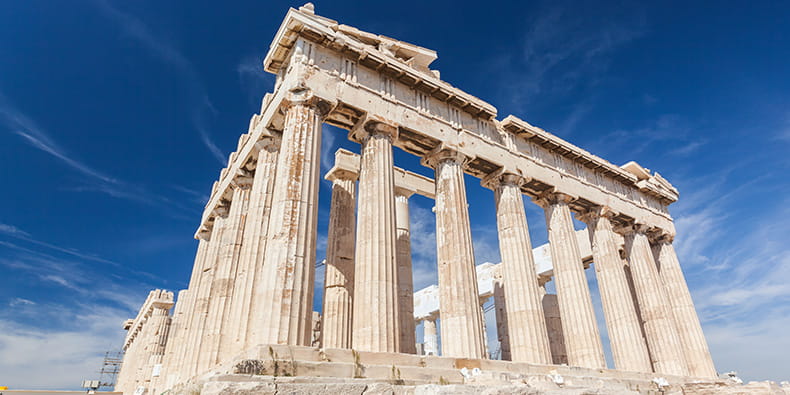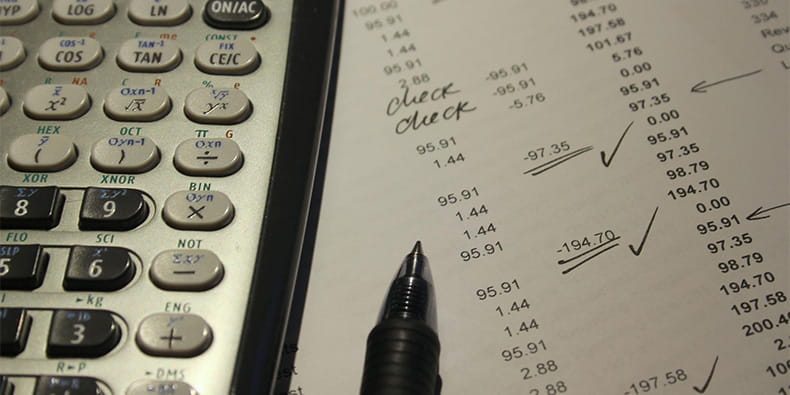Gambling in Sports History Over the Centuries
The history of gambling in sports is a difficult thing to summarise. With evidence dating from the time of Ancient China, the Roman Empire, and other ancient civilisations, we reckon academics could write whole books on the subject. Yet, we don’t have enough time for such extensive scholarly research. Instead, we will give you the cliff notes about gambling in sports history.
Sports Gambling in Antiquity
The urge to gamble looks to be a natural human inclination, no matter which way you slice it. Smart apes that we are, we take great enjoyment in staking our hard-earned valuables on an outcome that we have no control over. It’s the most natural thing in the world for us. There is evidence of humans gambling before we even had the written word, which is quite exemplary of our priorities as a species.
Roman History of Sports Gambling

The Ancient Romans had the opportunity to gamble on a wide range of different spectacles. This included simple board games, dice and knucklebones, but also what we would now consider sports events. The Circus Maximus and the Colosseum are some of the most spectacular entertainment venues of the Ancient World, and their grandeur was only matched in the 20th century. The former housed chariot races, while the latter saw countless people and animals engage in brutal blood sports and executions.
Say what you want about the Romans, but they had a way of turning something as grim as an execution into public entertainment. And you can bet that some gambling took place at these monuments to Antiquity. Mind you, that was outlawed during the Republican and Imperial period, but who was going to stop the bloodthirsty rabble from wagering some denarii on their favourite gladiator.
Sports Betting History in Ancient China and Greece
Records of Chinese gambling are available for more than 4000 years ago. While these gambling games were nothing like the ones at the top casinos in Macau, it’s quite telling that the roots of ancient gambling games go as far back as recorded history. In fact, acts of gambling make an appearance throughout every Chinese dynasty up until the 1940s.

Of course, we cannot forget the oldest and most popular form of organised sports – the Olympic games. The Ancient Greeks gathered every four years and held massive competitions. You can be absolutely certain that many wagers were made in honour of Zeus. While the ancient Olympic Games died out around the year 400 AC, their modern equivalent definitely gives us the opportunity to make up for lost time.
Sports Gambling History Goes Dark
As far as the Middle Ages are concerned, the annals of history go silent. This period of history is also known as the dark ages since there were so few historical records kept. Given that we barely know enough about the rulers and significant events of the time, it’s asking for too much to know about the history of sports gambling from this period. Still, things get better as we travel in time closer to the present day.
History of Sports Gambling Odds
Gambling on sports has remained popular throughout the years across all time periods. Regardless of where you find yourself in the world, the odds are you will see some kind of betting taking place. But it was not until the 19th century that we saw something resembling the products at the top UK gambling sites.
Pari-Mutuel Wagering

The advent of pari-mutuel wagering is considered one of the most important developments in sports betting history. At some point, bettors considered that placing bets with each other was too inefficient. So, they decided to scale it up a notch. Pari-mutuel wagering dates back to the second half of the 1800s.
This system allows everyone to pool their money together, and the winning side splits the spoils proportionally to the bet size of each bettor. The bettor’s winnings are directly correlated with the amount of money wagered on the losing outcome.
This gave rise to concentrated and popular betting locations, usually located near sports and racing venues. Until the rise of modern bookmaking, this was the go-to system for organising wagers on sports and races. It was quite popular until bookies came up with another method to ply their trade – fixed odds betting.
Fixed Odds Betting

Fixed-odds betting marks a turning point in the history of sports betting. It shifted away from a system where bettors put their stakes against each other to one where they wager against the bookmaker. In fixed odds betting, the house provides the odds based on the expected performance of each participant. The more likely an outcome, the lower odds it has.
With this type of odds, the bookmakers try to predict the likelihood of each outcome and shift the odds as new bets come in. It is a balancing act where the bookie tries to secure the best possible deal for the house. A commission is not taken as with pari-mutuel wagering, but the profit comes from the discrepancy in the odds. This system is used to lure bettors with massive odds at modern online sportsbooks.
Sports Gambling History in the Modern Age

While the first records of gambling in sports history place the first bookmaking operations somewhere in the 18th century, there are not enough details to form a conclusive picture. The first bookmaker in the UK is considered to be Harry Ogden, who ran a bookmaking business from the 1790s. Some statutes forbade the practice, but these laws were never enforced.
Despite this, bookmakers were not that keen on publicly advertising their practices. The police would normally look the other way, as long as it didn’t get out of hand. This is how many betting shops continued to operate until more liberal laws were introduced in the 20th century.
The modern age is where we have some definitive records about the history of sports betting. The act of wagering money on sports was quite prominent in the late 19th century, and by the 20th, it had become a major industry. The US was a hotbed for gambling activity, and many bookmakers got rich in the process.
Of course, not everyone was on board, and many states opted to ban gambling entirely. But where it was available, sports betting was part of everyday life. With various sports events and races taking place almost every day, there was no shortage of events to bet on. Baseball, football, horse racing, and many more were drawing in viewers by the thousands, with millions listening to radio broadcasts.
However, lawmakers were not so keen on this recreational betting, and many opted to put an end to the practice. Naturally, messes such as the Black Box Scandal, where the favoured team were bribed to throw the MLB’s 1919 World Series finals, didn’t reflect well on the industry. This and similar indignities would leave a lasting mark on the history of sports gambling in the US.
US Gambling Takes a Hit

Over time, there were only a few places in the US where gambling was legal. This gave rise to major gambling hubs, such as Las Vegas and Atlantic City. But simply because something is illegal doesn’t mean it doesn’t happen. Organised crime swooped in to take advantage of the lack of competition and established thousands of illegal bookmaker shops all over the country.
In the 1960s, the Federal government pushed back, introducing laws that prohibited sports betting over wired communication. While this did have the desired effect, it would have unforeseen consequences by the time online gambling became a thing.
Many consider the PASPA Act the final nail in the coffin of legitimate sports gambling in the US. It was introduced in 1992 and effectively banned the industry on the federal level. It would not be repealed until 2018.
Online Gambling in Sports History

The Internet brought many new opportunities for every aspect of daily life. The sports gambling industry was also not left unchanged. Online gambling sites started popping up, offering just about all kinds of new possibilities. Online roulette sites allowed everyone to play their favourite casino games right from the comfort of their home, whereas before, they needed to visit a land-based venue.
Online sportsbooks were not far behind either. You could now bet to your heart’s desire on just about any sports event in the world. You didn’t even need to step out the door of your home. But it wasn’t all fun and games, though. The Internet allows for unrivalled anonymity, which leaves the opportunity for unaccountability. Scam platforms were all too common, and they still are to some extent. So, various governments devised measures to keep the industry in check.
The UK established the UK Gambling Commission to regulate its land-based and online gambling sectors. This has proven the be one of the best decisions of the UK government over the last two decades. Not only did it legitimise the online gambling scene as a viable industry, but it proved that with the proper regulations and oversight, it could become something great.
The UKGC now stands as one of the most trusted regulatory institutions in the world, and many different countries have taken its example. In fact, the sports gambling laws worldwide have become quite receptive to the industry. Here is a brief list of some gambling regulatory bodies in Europe and the world:
| 🏛 Government Institution | ⚖️ Jurisdiction |
|---|---|
| Malta Gaming Authority | Malta |
| Spelinspektionen | Sweden |
| New Jersey Division of Gaming Enforcement | New Jersey, USA |
| Gibraltar Regulatory Authority | Gibraltar |
| Kahnawake Gaming Commission | Mohawk Territory of Kahnawake, Canada |
| Alcohol and Gaming Commission of Ontario | Ontario, Canada |
| Pennsylvania Gaming Control Commission | Pennsylvania, USA |
This is only a short list of the numerous institutions worldwide regulating online gambling. In the coming years, the industry is bound to become even more widespread as more markets liberalise.
The US Takes Notice

The US was initially slow to take any meaningful action regarding online gambling. In fact, in the mid-2000s, the Federal government decided to ban it outright. This has proven to be yet another black mark on the history of sports gambling in the USA.
Of course, the Americans finally got their act together, and in 2018, PASPA was repealed. This allowed individual states to decide if they wanted to have online gambling within their borders. Many states followed the example of New Jersey, which had had online gambling platforms prior to the ban, and decided to liberalise. Some of the more notable examples include:
- 🥇Pennsylvania
- ☑️ New Jersey
- 🎲 Nevada
- 🏅 West Virginia
- ♦️ Michigan
- ᗎ Delaware
Now there are USA online casinos and online sportsbooks in a wide range of states. As of the beginning of 2022, at least 18 states passed legislation permitting some form of online gambling. Usually, this is in the form of sports betting.
Right now, all eyes are on the US market. While the European scene has more or less settled, Americans are only just getting to know the joys of legitimate online sports betting. With more than 30 other states left to go, we will keep a close eye on the development of the US gambling laws.
Popular Questions
If you have any questions about the history of sports gambling, be sure to check out the FAQ section. We have gathered all major questions online and provided quick and convenient answers.
Similar Articles


